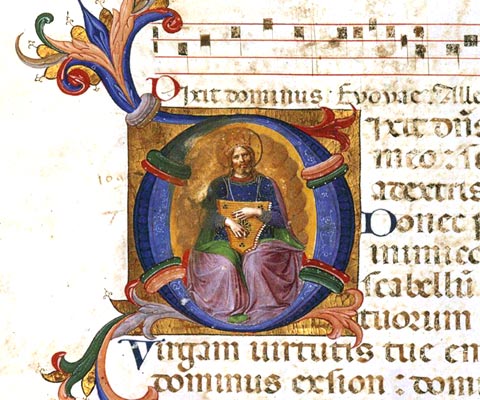The
O Antiphons of Advent
.
.
by Jeanne Kun
The O Antiphons of Advent have been
described as "a unique work of art and a special
ornament of the pre-Christmas liturgy, filled
with the Spirit of the Word of God" (see
below). They "create a poetry that fills
the liturgy with its splendor", and their
composer shows "a magnificent command of the
Bible's wealth of motifs". The antiphons are, in
fact, a collage of Old Testament types of Christ
[the Anointed One and Messiah].
Their predominant theme is messianic, stressing
the hope of the Savior's coming. Jesus is
invoked by various titles, mainly taken from the
prophet Isaiah. The sequence progresses
historically, from the beginning, before
creation, to the very gates of Bethlehem.
The following hymn "O Come, O Come, Emmanuel" is
based on seven Antiphons from the early church
used in the seven days before Christmas. These
prayers address Christ using many of the
Messianic titles found in the Old Testament.
|
O Come, O
Come, Emmanuel
(1) O come, O come,
Emmanuel,
And ransom
captive Israel,
That mourns in
lonely exile here
Until the Son of
God appear.
Refrain:
Rejoice! Rejoice!
Emmanuel
Shall come to thee, O Israel.
(2) O come, O
come, Thou Lord of Might,
Who to thy tribes
on Sinai's height,
In ancient times
didst give the Law,
In cloud, and
majesty, and awe.
Refrain:
Rejoice! Rejoice! Emmanuel
Shall come to thee, O Israel.
(3) O come, Thou
Rod of Jesse, free,
Thine own from
Satan's tyranny;
From depths of
hell thy people save,
And give them
victory o'er the grave.
Refrain:
Rejoice! Rejoice!
Emmanuel
Shall come to
thee, O Israel.
(4) O come, Thou
Key of David, come;
And open wide our
heav'nly home;
Make safe the way
that leads on high,
And close the
path to misery.
Refrain:
Rejoice! Rejoice!
Emmanuel
Shall come to
thee, O Israel.
(5) O come, Thou
Dayspring, come and cheer
Our spirits by
thine advent here;
Disperse the
gloomy clouds of night,
And death's dark
shadows put to flight.
Refrain:
Rejoice! Rejoice!
Emmanuel
Shall come to
thee, O Israel.
(6) O come, Thou
Wisdom from on high,
And order all
things far and nigh;
To us the path of
knowledge show,
And cause us in
her ways to go..
Refrain:
Rejoice! Rejoice!
Emmanuel
Shall come to
thee, O Israel.
(7) O come,
Desire of Nations, bind
All people in one
heart and mind;
Bid envy, strife,
and quarrels cease;
Fill the whole
world with heaven's peace.
Refrain:
Rejoice! Rejoice!
Emmanuel
Shall come to
thee, O Israel.
|
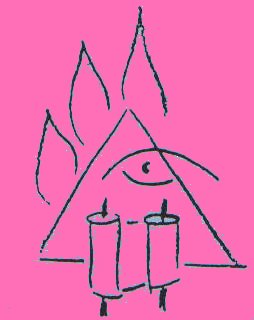 Antiphon
for December 17 Antiphon
for December 17
O Wisdom, you
came forth from the mouth of the Most
High and, reaching from beginning to
end, you ordered all things mightily and
sweetly. Come, and teach us the
way of prudence.
This antiphon, like all the others to follow, is
based on a composite of Scripture texts.
Sirach 24:3: "From the mouth of the Most
High I came forth, and like mist covered the
earth".
Wisdom 8:1: "She reaches from end to end
mightily and governs all things well".
Wisdom is here personified, present with God at
the beginning of creation. This is a
prefigurement of Jesus, the eternal Word of God,
the "logos" John described in the opening of his
gospel. Wisdom is the foundation of fear
of the Lord, of holiness, or right living: it is
wisdom whom we bid to come and teach us
prudence. The cry "Come" will be repeated
again and again, insistent and hope-filled.
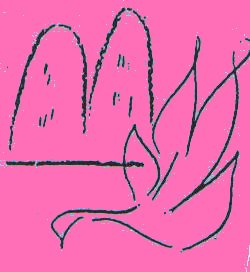 Antiphon for December 18 Antiphon for December 18
O Adonai and
Ruler of the House of Israel, you
appeared to Moses in the fire of the
burning bush and on Mount Sinai gave him
your law. Come, and with
outstretched arm redeem us.
Exodus 3:2: "An angel of the Lord appeared to
him in fire flaming out of a bush. As he
looked on, he was surprised to see that the
bush, though on fire, was not consumed".
Exodus 6:6: "Therefore say to the Israelites: I
am Yahweh. I will free you from the
enforced labor of the Egyptians and will deliver
you from their slavery. I will rescue you
by my outstretched arm and with mighty acts of
judgment".
"Adonai" is Hebrew for "my Lord", and was
substituted by devout Jews for the name
"Yahweh", out of reverence. With this
second antiphon we progress from creation to the
familiar story of God manifesting himself by
name to Moses and giving his law to Israel as
their way of life. We are also reminded of
the Israelites' deliverance from bondage under
pharaoh - a foreshadowing of our own redemption
from sin. The image of God's arm
outstretched in power to save his chosen people
also brings to mind the later scene of Jesus
with his arms outstretched for us on the cross.
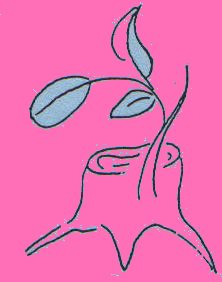 Antiphon for December 19 Antiphon for December 19
O Root of
Jesse, you stand as a sign for the
peoples; before you kings shall keep
silence and to you all nations shall
have recourse. Come, save us, and
do not delay.
Isaiah 52:13, 15; 53:2: "See, my servant shall
prosper...So shall he startle many nations,
because of him kings shall stand speechless.
...He grew up like a sapling before him, like a
shoot".
Isaiah prophesied a restoration of David's
throne - a new branch budding out of the
old root. Christ is the root of Jesse in a
two-fold sense: he is the descendant of David,
who was the youngest son of Jesse, and he
inherited the royal throne. The angel
foretold to Mary, "The Lord God will give him
the throne of David his father. He will
rule over the house of Jacob forever and his
reign will be without end" (Luke 1:32-33).
Our hearts more and more urgently cry out for
God's reign to extend over all humanity: "Come,
save us, and do not delay".
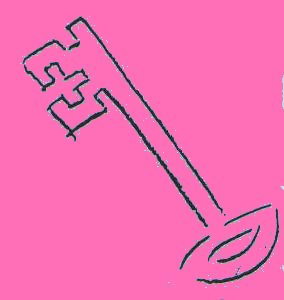 Antiphon for December 20 Antiphon for December 20
O Key of David and
Scepter of the House of Israel; you open
and no man closes; you close and no man
opens. Come, and deliver from the
chains of prison those who sit in darkness
and in the shadow of death.
Isaiah 22:22: "I will place the key of the House
of David on his shoulder. When he opens, no one
shall shut; when he shuts, no one shall open.
Revelation 3:7: "To the presiding spirit of the
church in Philadelphia write this: 'The holy
One, the true, who wields David's key, who opens
and no one can close, who closes and no
one can open'".
Isaiah 42:6-7: "I formed you, and set you as a
covenant of the people, a light for the nations,
to open the eyes of the blind, to bring out
prisoners from confinement, and from the dungeon
those who live in darkness".
The key and scepter are traditional symbols of
kingly power and authority. Christ, the anointed
one, is the heir of David and possessor of the
kingdom. Jesus himself also made use of this
symbol, showing the prophetic relationship of
the earthly kingdom of David to the kingdom of
God. All power and authority was given to
him after the resurrection, and he entrusted
this power to "bind and to loose" to Peter and
the ministers of his church.
In the closing petition we look to Jesus to
unlock the fetters of sin that keeps us tightly
chained. It is he who frees us from our
captivity. We recall the deliverance proclaimed
by the psalmist of old: "they dwelt in darkness
and gloom, bondsmen in want and in chains,...and
he led them forth from darkness and gloom and
broke their bonds asunder" (Psalm 107: 10, 14).
Antiphon for December
21

O Rising Dawn, Radiance
of the Light eternal and Sun of Justice:
come and enlighten those who sit in
darkness and in the shadow of death.
Isaiah 9:1: "The people who
walked in darkness have seen a great light. Upon
those who dwelt in the land of gloom a light has
shone".
Malachi 3:20: "For you who
fear my name, there will arise the sun of
justice with its healing rays".
2 Peter 1:19: "Keep your
attention closely fixed on it, as you would on a
lamp shining in a dark place, until the first
streaks of dawn appear and the morning star
rises in your heart".
This title is variously translated "morning
star", "Dayspring", "rising sun", "radiant
dawn", "orient". All beautifully express
the idea of light shattering the darkness of
night, of sin and death, of sickness and
despair, with its brightness bringing healing
and warmth to cold hearts. Jesus is indeed
the true light, the radiance of his Father's
splendor. The church prays this petition daily
in the Benedictus, joining in the words of
Zechariah: "He, the Dayspring, shall visit us in
his mercy to shine on those who sit in darkness
and in the shadow of death" (Luke
1:78-79).
 Antiphon for December 22 Antiphon for December 22
O King of the
Gentiles and the Desired of all, you are
the cornerstone that binds two into
one. Come, and save man whom you
fashioned out of clay.
Isaiah 28:16: "Therefore,
thus says the Lord God: See, I am laying a stone
in Zion, a stone that has been tested, a
precious cornerstone as a sure foundation".
Ephesians 2:14: "He it is who
is our peace, and who made the two of us one by
breaking down the barrier of hostility that kept
us apart".
The earlier antiphons have already alluded to
the Messiah coming not only to Israel but
to convert the gentile nations and redeem them
for his own. Now this sixth antiphon clearly
addresses the savior as the king of the gentiles
(Jer.10:7) and the Desired One of the
nations. The Messiah is the cornerstone on
whom our spiritual foundations are laid, but on
whom unbelievers stumble (Matt. 21:42).
This cornerstone unites and binds Jew and
gentile into one, making peace between them.
The plea is that God save all humanity, all his
creation that he formed from the dust of the
earth (Gen.2:7). We yearn for him once
again to breathe the breath of his new life into
us.
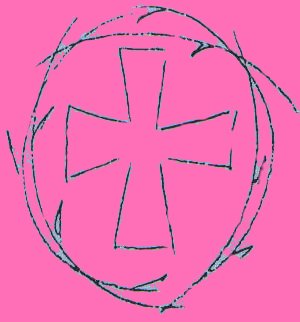 Antiphon for December 23 Antiphon for December 23
O Emmanuel, our
King and Lawgiver, the Expected of the
nations and their Savior. Come and
save us, O Lord our God.
Isaiah 7:14: "Therefore the Lord himself will
give you this sign: the virgin shall be with
child, and bear a son, and shall name him
Emmanuel".
Isaiah 33:22: "Indeed the Lord will be there
with us, majestic. Yes, the Lord our
judge, the Lord our lawgiver, the Lord our king,
he it is who will save
us".
With this last antiphon our expectation finds
joy now in the certainty of fulfillment.
We call Jesus by one of the most personal and
intimate of his titles, Emmanuel,
God-with-us. We recall that in his birth
from the Virgin Mary God takes on our very flesh
and human nature: God coming nearer to us than
we could have ever imagined! Yet he is
also to be exalted above us as our king, the
lawgiver and judge, the one whom we honor and
obey. And he is our savior, long-expected
by all creation. The final cry rises from
us urgent in our need for daily salvation and
forgiveness of our sins, and confident that our
God will not withhold himself from us.
illustrations and commentary text (c) 2000
Jeanne Kun
King
David in Letter O (top image), by Fra
Angelico, 1443-45
Praising the Names of
Jesus:
The Antiphons of Advent
by Jeanne Kun
It is especially in the
final week of Advent that our attention is
fixed on the messianic promises proclaimed
by the ancient prophets of Israel. A
distinctive feature of the Liturgy of the
Hours in this week preceding the Christmas
vigil is the antiphon sung at Vespers
(evening prayer) before and after the
recitation of the Magnificat. Originally
incorporated into the monastic office in the
Middle Ages, these antiphons, often called
the "Greater Antiphons" or the "O
Antiphons", are also echoed in the daily
lectionary as the verse for the gospel
acclamation during this week. They add a
mood of eager expectation to the liturgy
that builds throughout these seven days and
climaxes at Christmas.
The O Antiphons have
been described as "a unique work of art and
a special ornament of the pre-Christmas
liturgy, filled with the Spirit of the Word
of God". They "create a poetry that fills
the liturgy with its splendor", and their
composer shows "a magnificent command of the
Bible's wealth of motifs". The antiphons
are, in fact, a collage of Old Testament
types of Christ. Their predominant theme is
messianic, stressing the hope of the
Savior's coming. Jesus is invoked by various
titles, mainly taken from the prophet
Isaiah. The sequence progresses
historically, from the beginning, before
creation, to the very gates of Bethlehem.
In their structure,
each of the seven antiphons follows the same
pattern, resembling a traditional liturgical
prayer. Each O Antiphon begins with an
invocation of the expected Messiah, followed
by praise of him under one of his particular
titles. Each ends with a petition for God's
people, relevant to the title by which he is
addressed, and the cry for him to "Come".
The seven titles
attributed to Jesus in the antiphons are
Wisdom (Sapientia in Latin), Ruler of
the House of Israel (Adonai), Root of
Jesse (Radix), Key of David (Clavis),
Rising Dawn (Oriens), King of the
Gentiles (Rex). and Emmanuel.
In Latin the initials of the titles make an
acrostic which, when read backwards. means:
"Tomorrow I will be there" ("Ero
cras"). To the medieval mind this was
clearly a reference to the approaching
Christmas vigil.
Today the O Antiphons
are most familiar to us in the hymn "O come,
O come Emmanuel". Each verse of the hymn
parallels one of the antiphons. In addition
to their use in the Liturgy of the Hours and
the gospel acclamation, they have been
popularly incorporated into church devotions
and family prayer. An Advent prayer service
for use at home, in school, or in the events
of parish life can be built around the
singing or recitation of the antiphons,
accompanied by the related Scripture
readings and prayers. They can be prayed at
family dinner times or with the lighting of
the Advent wreath, with a short explanation
of their biblical background. The titles can
also be depicted by simple symbols - for
example, on banners and posters or in
bulletin illustrations - to help us to
reflect on these Advent themes.
See also > Readings,
Sermons and Reflections for
Advent
O Antiphon art work
and commentary text (c) 2000 by Jeanne
Kun
King David in
Letter O (top image), by
Fra Angelico, 1443-45
Jeanne
Kun is a noted author and a senior woman
leader in the Word
of
Life Community, Ann Arbor,
Michigan, USA. Jeanne Kun
is also an active
member and past president of Bethany
Association.
|
